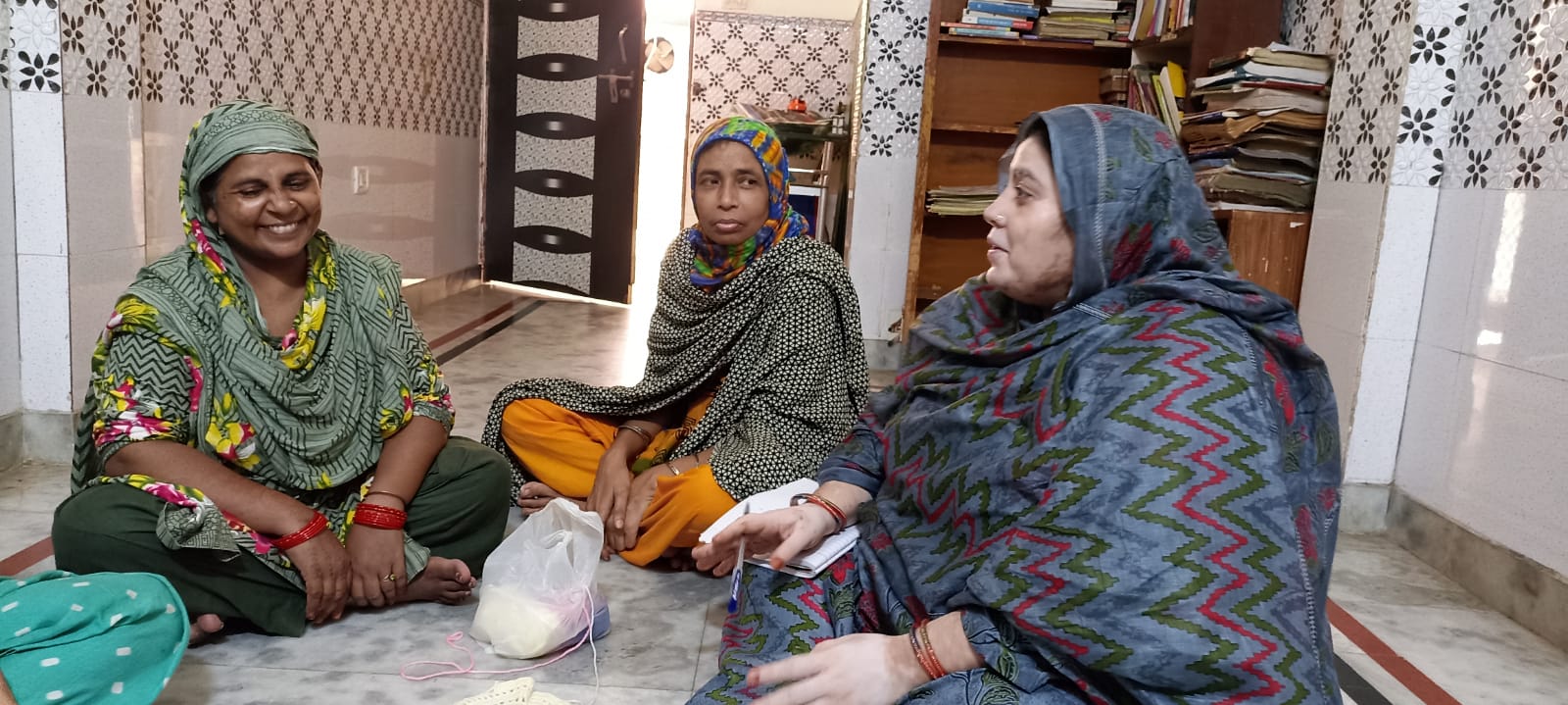Domestic Workers in Trilokpuri
Domestic Workers
Domestic workers are workers who work in or for a private household or households. They perform direct and indirect care services and are key members of the care economy. Their services may include cooking, washing, cleaning the house, ironing clothes, child care or taking care of the elderly or sick members of a family, safeguarding the house, driving, gardening and even pet sitting. A domestic worker may work full-time or part-time and may be employed by a single household, through or by a service provider. They may be living in the employer’s household (live-in worker) or may be residing in his or her own residence (live-out). A domestic worker working in another country is referred to as a migrant domestic worker.
Vulnerable Workers
According to statistics, there are 75.6 million domestic workers worldwide of which 76.2 percent are women, meaning that a quarter of domestic workers are men. There are many factors that lead women to enter domestic work. Women from poor background or disadvantaged communities do not have much employment opportunities and may face discrimination on the basis of gender, caste, class, race or ethnicity. Domestic work is a more important source of employment to female employees in contrast to male employees. Domestic workers rarely have access to rights and protection although they provide essential services. Around 81 percent of workers are employed in an informal manner, that is, twice the share of informal employment among other employees. They also work under strenuous working conditions. Domestic workers earn 56 percent of average monthly wages of other employees and are more likely than other workers to work for very long or short hours. They also face violence and harassment and restrictions on freedom of movement. Informal domestic workers are more vulnerable to such situations. There are many factors that cause women to enter domestic work. Women from poor background or backward communities are often provided with few employment opportunities and may undergo discrimination based on gender, caste, class, race or ethnicity.
Trilokpuri is a popular locality situated in New Delhi. Foundation For Equal Citizenship (FFEC) is located in Trilokpuri, East Delhi where a significant number of the population are domestic workers. Trilokpuri is sometimes referred as the “maid supplier of Delhi”. The maids work in Mayur Vihar housing societies.
Financial Responsibilities
According to a post covid news report, women employed as domestic workers often bear a disproportionate burden of not just unpaid work at their own homes, but also financial responsibilities. The survey states that as many as 51% workers had unemployed spouses and 36% were divorced, separated or widowed women.
About 17 organizations and unions in Delhi-NCR came together to form the Network of Rights and Voices of Domestic Workers and to ensure the safety and security of these women. Many other organizations and unions across the nation also held discussions with domestic workers to prepare a declaration of demands that called for a minimum money transfer to domestic workers under the National Disaster Management Act, global registration of employers and domestic workers, national legislation, an urban employment guarantee scheme and strengthening of local committees at the district level where workers can lodge complaints about workplace sexual harassment.
Plight of Women
In a focus group held on ‘Challenges of Working Women’ by FFEC, Nazia, a 40 year old domestic worker says, “My husband is an auto-driver. We live in Ambedkar camp, a jhuggi near Block 32 in Trilokpuri. We have 3 children and we had no income after covid hit. I leave for work around 7:30 am or 8 am and I leave my little daughter in the care of my mother in law. Once I found out that my brother in law touched my daughter inappropriately. My mother in law didn’t seem to care about it but my husband and I wanted to go to the police. However, we were scared of the repercussions”.
“I’ve been working in Mayur Vihar for more than 10 years now and I’ve had good experiences. The only thing is I’m worried about the safety of my children and my neighbors watch over them” says a domestic worker who wishes to be anonymous.
“I started working due to hardships during the lockdown,” says another woman.
Conclusion
Foundation For Equal Citizenship (FFEC) has been providing rations to very poor families in the Trilokpuri Community. It is sad and horrifying to see the plight of women and children. At the same time, this sends out a message that it is high time we hold the abusers accountable and raise better men. We ought to make the world a better place for everyone.
